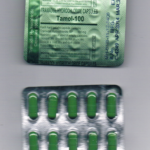Because the pain process is complex, there are many types of pain drugs that provide relief by acting through a variety of physiological mechanisms. Thus, effective medication for nerve pain will likely have a different mechanism of action than arthritis pain medication.

- Nonsteroidal anti-inflammatory drugs (NSAIDs) act on substances in the body that can cause inflammation, pain, and fever.
- Corticosteroids are often administered as an injection at the site of musculoskeletal injuries. They exert powerful anti-inflammatory effects. They can also be taken orally to relieve pain from, for example, arthritis.
- Acetaminophen increases the body’s pain threshold, but it has little effect on inflammation.
- Opioids, also known as narcotic analgesics, modify pain messages in the brain.
- Muscle relaxants reduce pain from tense muscle groups, most likely through sedative action in the central nervous system.
- Anti-anxiety drugs work on pain in three ways: they reduce anxiety, they relax muscles, and they help patients cope with discomfort.
- Some antidepressants, particularly the tricyclics, may reduce pain transmission through the spinal cord.
- Some Anticonvulsants drugs also relieve the pain of neuropathies, possibly by stabilizing nerve cells.
- Headache Relief Drugs
Pain Medications, Pain Relief, and Pain Management








